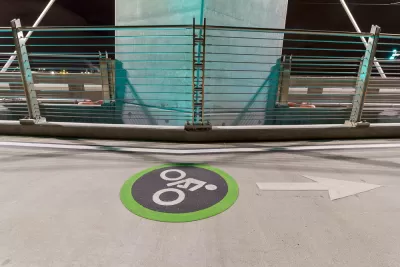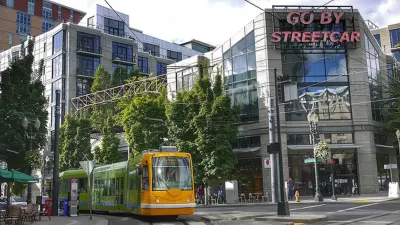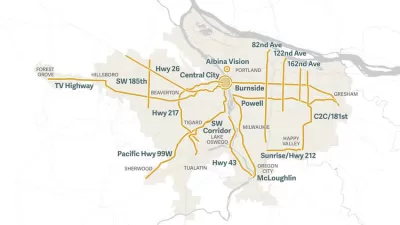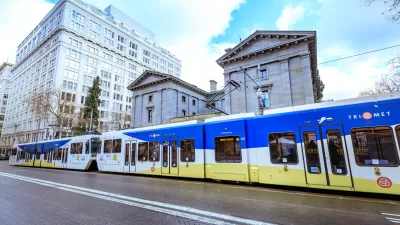Even a city with a sterling reputation for multi-modal transportation planning isn't making progress in removing carbon emissions from the local economy.

"A 21-page white paper [pdf] released today by the Portland Bureau of Planning and Sustainability says carbon emissions from the transportation sector are 'increasing dramatically' and are currently 8% over 1990 levels," reports Jonathan Maus.
The report blames Portland's increasing carbon emissions on the growing population of the city—and the increased car trips new residents bring. According to the report, transportation accounts for 42 percent of the city's carbon emissions.
Still, emissions are quite a bit lower than historic highs, but recent trends have not been positive, according to Maus: "Overall, our emissions are 38% below 1990 levels despite significant population and job growth. However, after emissions tumbled from their peak in 2000 to their lowest levels in 2012, the report found a plateau since then."
FULL STORY: Report: Portland transportation emissions ‘increasing dramatically’

Maui's Vacation Rental Debate Turns Ugly
Verbal attacks, misinformation campaigns and fistfights plague a high-stakes debate to convert thousands of vacation rentals into long-term housing.

Planetizen Federal Action Tracker
A weekly monitor of how Trump’s orders and actions are impacting planners and planning in America.

In Urban Planning, AI Prompting Could be the New Design Thinking
Creativity has long been key to great urban design. What if we see AI as our new creative partner?

Chicago’s Ghost Rails
Just beneath the surface of the modern city lie the remnants of its expansive early 20th-century streetcar system.

Baker Creek Pavilion: Blending Nature and Architecture in Knoxville
Knoxville’s urban wilderness planning initiative unveils the "Baker Creek Pavilion" to increase the city's access to green spaces.

Pedestrian Deaths Drop, Remain Twice as High as in 2009
Fatalities declined by 4 percent in 2024, but the U.S. is still nowhere close to ‘Vision Zero.’
Urban Design for Planners 1: Software Tools
This six-course series explores essential urban design concepts using open source software and equips planners with the tools they need to participate fully in the urban design process.
Planning for Universal Design
Learn the tools for implementing Universal Design in planning regulations.
planning NEXT
Appalachian Highlands Housing Partners
Mpact (founded as Rail~Volution)
City of Camden Redevelopment Agency
City of Astoria
City of Portland
City of Laramie





























